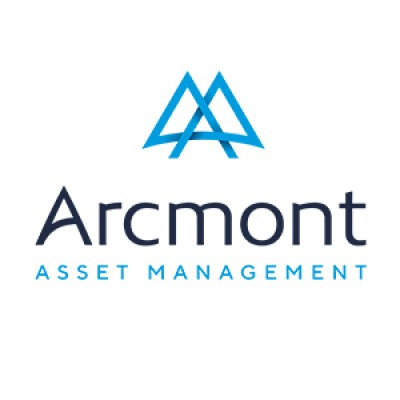The Rise of Impact Investing: A New Era in Private Capital
March 31, 2025, 7:16 am

Location: United States, New York, Watervliet
Employees: 1001-5000
Founded date: 1898
Total raised: $250M

Location: United Kingdom, England, City of Westminster
Employees: 51-200
Founded date: 2011
In the world of finance, change is the only constant. Recently, two significant developments have emerged from the private capital sector, highlighting a shift towards impact investing. This approach marries financial returns with social and environmental responsibility. The landscape is evolving, and investors are taking notice.
Churchill Asset Management has made headlines with its latest move. The firm closed a $750 million collateralized fund obligation, known as NPC SIP 2024-1. This transaction is not just a number; it represents a strategic pivot in the investment world. It’s a long-duration bond that spans various investment strategies. Think of it as a diversified garden, where each plant represents a different asset class.
Churchill, a part of Nuveen, has joined forces with Arcmont Asset Management. Together, they form a colossal private capital platform worth $78 billion. This partnership is a powerhouse in private credit management. It’s like combining two rivers to create a mighty waterfall. The implications are vast, affecting both U.S. and European markets.
In the U.S., the focus is on senior lending, junior capital, equity co-investment, secondaries, and private equity fund commitments. Each of these strategies serves a unique purpose, like the different instruments in an orchestra. In Europe, the narrative shifts slightly. Here, the emphasis is on direct lending, impact lending, capital solutions, and NAV financing. This geographical distinction is crucial. It reflects the diverse needs of investors across the Atlantic.
Meanwhile, Arcmont Asset Management is making waves of its own. The firm recently launched a new Impact Lending strategy, securing €475 million from APG and TIAA. This strategy is not just about numbers; it’s about making a difference. It aims to provide debt financing to companies that tackle pressing environmental and social challenges. Picture a lighthouse guiding ships through stormy seas. This strategy seeks to illuminate paths toward sustainability.
The focus areas are clear: climate, health, education, and sustainable economic growth. These themes resonate deeply in today’s world. Investors are increasingly aware of their role in addressing global challenges. They want their money to work for them, but they also want it to work for the planet. This dual focus is the essence of impact investing.
Arcmont’s approach is rooted in responsible capital allocation. It’s not just about financial returns; it’s about creating measurable impact. The firm has partnered with Bridgespan Social Impact to ensure that its strategy is anchored in industry frameworks. This collaboration is like a compass, guiding the firm through the complexities of impact measurement.
The impact management process is rigorous. It aligns with the Operating Principles for Impact Management and has been independently verified by BlueMark. This verification adds a layer of credibility. Investors can trust that their contributions are making a real difference. Transparency is key. Arcmont commits to reporting on outcome impact KPIs, providing clear insights into the social and environmental outcomes achieved.
This new wave of impact investing is not just a trend; it’s a paradigm shift. Investors are no longer satisfied with traditional returns. They want to see their investments create positive change. This shift is akin to a tectonic plate movement in the investment landscape. It’s reshaping how capital flows and where it’s directed.
The partnership between Arcmont and its investors, APG and TIAA, is a testament to this shift. Both organizations are leaders in their fields, and their commitment to impact investing is a powerful statement. They are not just seeking attractive returns; they are also contributing to a sustainable future. This dual objective is the new gold standard in investing.
As the world grapples with climate change, social inequality, and other pressing issues, the demand for responsible investing will only grow. Investors are becoming more discerning. They want to know where their money is going and what it’s achieving. This scrutiny is driving firms like Arcmont to innovate and adapt.
The landscape of private capital is changing. The rise of impact investing is a clear signal that investors are ready to embrace this new reality. They are looking for opportunities that align with their values. They want to be part of the solution, not just passive observers.
In conclusion, the recent developments at Churchill Asset Management and Arcmont Asset Management highlight a significant trend in the investment world. Impact investing is not just a buzzword; it’s a movement. As firms adapt to this new landscape, the potential for positive change is immense. Investors are not just looking for financial returns; they are seeking to make a difference. This is the dawn of a new era in private capital, where profit and purpose go hand in hand. The future is bright, and the possibilities are endless.
Churchill Asset Management has made headlines with its latest move. The firm closed a $750 million collateralized fund obligation, known as NPC SIP 2024-1. This transaction is not just a number; it represents a strategic pivot in the investment world. It’s a long-duration bond that spans various investment strategies. Think of it as a diversified garden, where each plant represents a different asset class.
Churchill, a part of Nuveen, has joined forces with Arcmont Asset Management. Together, they form a colossal private capital platform worth $78 billion. This partnership is a powerhouse in private credit management. It’s like combining two rivers to create a mighty waterfall. The implications are vast, affecting both U.S. and European markets.
In the U.S., the focus is on senior lending, junior capital, equity co-investment, secondaries, and private equity fund commitments. Each of these strategies serves a unique purpose, like the different instruments in an orchestra. In Europe, the narrative shifts slightly. Here, the emphasis is on direct lending, impact lending, capital solutions, and NAV financing. This geographical distinction is crucial. It reflects the diverse needs of investors across the Atlantic.
Meanwhile, Arcmont Asset Management is making waves of its own. The firm recently launched a new Impact Lending strategy, securing €475 million from APG and TIAA. This strategy is not just about numbers; it’s about making a difference. It aims to provide debt financing to companies that tackle pressing environmental and social challenges. Picture a lighthouse guiding ships through stormy seas. This strategy seeks to illuminate paths toward sustainability.
The focus areas are clear: climate, health, education, and sustainable economic growth. These themes resonate deeply in today’s world. Investors are increasingly aware of their role in addressing global challenges. They want their money to work for them, but they also want it to work for the planet. This dual focus is the essence of impact investing.
Arcmont’s approach is rooted in responsible capital allocation. It’s not just about financial returns; it’s about creating measurable impact. The firm has partnered with Bridgespan Social Impact to ensure that its strategy is anchored in industry frameworks. This collaboration is like a compass, guiding the firm through the complexities of impact measurement.
The impact management process is rigorous. It aligns with the Operating Principles for Impact Management and has been independently verified by BlueMark. This verification adds a layer of credibility. Investors can trust that their contributions are making a real difference. Transparency is key. Arcmont commits to reporting on outcome impact KPIs, providing clear insights into the social and environmental outcomes achieved.
This new wave of impact investing is not just a trend; it’s a paradigm shift. Investors are no longer satisfied with traditional returns. They want to see their investments create positive change. This shift is akin to a tectonic plate movement in the investment landscape. It’s reshaping how capital flows and where it’s directed.
The partnership between Arcmont and its investors, APG and TIAA, is a testament to this shift. Both organizations are leaders in their fields, and their commitment to impact investing is a powerful statement. They are not just seeking attractive returns; they are also contributing to a sustainable future. This dual objective is the new gold standard in investing.
As the world grapples with climate change, social inequality, and other pressing issues, the demand for responsible investing will only grow. Investors are becoming more discerning. They want to know where their money is going and what it’s achieving. This scrutiny is driving firms like Arcmont to innovate and adapt.
The landscape of private capital is changing. The rise of impact investing is a clear signal that investors are ready to embrace this new reality. They are looking for opportunities that align with their values. They want to be part of the solution, not just passive observers.
In conclusion, the recent developments at Churchill Asset Management and Arcmont Asset Management highlight a significant trend in the investment world. Impact investing is not just a buzzword; it’s a movement. As firms adapt to this new landscape, the potential for positive change is immense. Investors are not just looking for financial returns; they are seeking to make a difference. This is the dawn of a new era in private capital, where profit and purpose go hand in hand. The future is bright, and the possibilities are endless.